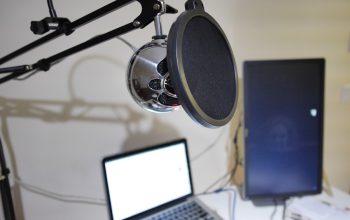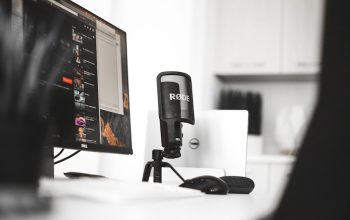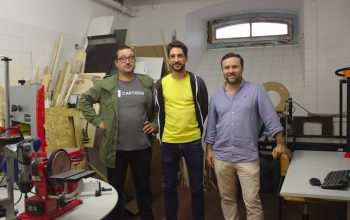In recent years, the popularity of podcasts has surged dramatically, transforming the way information is consumed and shared. This audio format, which allows listeners to engage with content on-the-go, has found a significant niche in the realm of education. The rise of educational podcasts can be attributed to several factors, including the increasing accessibility of technology, the demand for flexible learning options, and the desire for diverse educational resources.
With smartphones and other portable devices becoming ubiquitous, learners can now access a wealth of knowledge at their fingertips, making it easier than ever to integrate learning into their daily routines. Moreover, the podcasting medium offers a unique blend of storytelling and information dissemination that appeals to a wide audience. Educators and content creators have recognized the potential of this format to convey complex ideas in an engaging manner.
As a result, a plethora of educational podcasts have emerged, covering topics ranging from science and history to language learning and personal development. This explosion of content not only caters to various interests but also provides educators with an innovative tool to enhance their teaching methods. The ability to listen to expert interviews, discussions, and narratives allows students to absorb information in a way that is often more relatable and memorable than traditional textbooks.
Key Takeaways
- Educational podcasts are on the rise as a valuable resource for learning outside the classroom.
- Using educational podcasts in the classroom can improve student engagement and comprehension.
- Incorporating educational podcasts into lesson plans can be as simple as assigning specific episodes for homework or in-class listening.
- Finding the best educational podcasts for your students involves considering their interests, learning styles, and the curriculum.
- Engaging students with educational podcasts can be achieved through interactive discussions, assignments, and projects related to the podcast content.
Benefits of Using Educational Podcasts in the Classroom
Diverse Perspectives and Critical Thinking
One of the most significant benefits is the ability to provide diverse perspectives on a subject matter. Podcasts often feature guest speakers who are experts in their fields, allowing students to hear firsthand accounts and insights that may not be available through standard curriculum materials. This exposure to varied viewpoints can foster critical thinking and encourage students to engage in discussions that deepen their understanding of complex topics.
Inclusive Resource for All Learning Styles
Educational podcasts can cater to different learning styles, making them an inclusive resource for all students. Auditory learners, for instance, may find it easier to grasp concepts when they are presented in an audio format rather than through written text.
Flexibility and Equitable Education
Furthermore, podcasts can be paused, rewound, or replayed, allowing students to learn at their own pace. This flexibility is particularly beneficial for those who may need extra time to process information or who wish to revisit challenging material. By accommodating different learning preferences, podcasts can help create a more equitable educational environment.
How to Incorporate Educational Podcasts into Lesson Plans

Incorporating educational podcasts into lesson plans requires thoughtful planning and alignment with learning objectives. Educators can begin by identifying specific topics or themes within their curriculum that could be enhanced by podcast content. For example, a history teacher might select a podcast episode that delves into a particular event or era being studied in class.
By integrating this audio resource into the lesson plan, teachers can provide students with additional context and depth that enriches their understanding of the subject matter. Once relevant podcasts have been identified, educators should consider how to structure the listening experience. This could involve assigning specific episodes as homework or incorporating them into class time as part of a guided discussion.
Teachers can create pre-listening activities that prepare students for what they are about to hear, such as discussing key terms or posing questions related to the episode’s content. Post-listening activities are equally important; these could include group discussions, reflective writing assignments, or even creative projects inspired by the podcast. By thoughtfully weaving podcasts into lesson plans, educators can create a dynamic learning environment that encourages active engagement and critical thinking.
Finding the Best Educational Podcasts for Your Students
| Podcast Name | Host | Topic | Rating |
|---|---|---|---|
| The Edtech Podcast | Sophie Bailey | Education technology | 4.5/5 |
| TED-Ed | TED | Various educational topics | 4/5 |
| Stuff You Should Know | Josh Clark and Chuck Bryant | General knowledge | 4.8/5 |
With an ever-expanding array of educational podcasts available, finding the right ones for your students can be a daunting task. A good starting point is to explore curated lists and recommendations from reputable educational organizations or platforms dedicated to podcasting. Websites like Common Sense Education and Edutopia often provide reviews and ratings for educational podcasts across various subjects and grade levels.
These resources can help educators identify high-quality content that aligns with their curriculum goals. Another effective strategy is to tap into the interests and needs of your students. Engaging them in discussions about their favorite topics or areas they wish to explore can guide educators in selecting relevant podcasts.
Additionally, educators should consider the age appropriateness and complexity of the content; some podcasts may be better suited for older students while others might cater to younger audiences. Listening to sample episodes before introducing them in class can also help ensure that the material resonates with students and meets educational standards.
Tips for Engaging Students with Educational Podcasts
To maximize student engagement with educational podcasts, educators should employ various strategies that foster interaction and participation. One effective approach is to create a community around podcast listening by encouraging students to share their thoughts and insights with one another.
Incorporating multimedia elements can also enhance engagement. For instance, educators might encourage students to create visual aids or infographics based on the podcast content they have listened to. This not only reinforces learning but also allows students to express their understanding creatively.
Additionally, integrating technology tools such as online discussion boards or social media platforms can facilitate ongoing conversations about podcast episodes outside of class time, further enriching the learning experience.
Using Educational Podcasts to Support Different Learning Styles

Educational podcasts are particularly effective in supporting diverse learning styles within the classroom. Auditory learners benefit from listening to spoken content, while visual learners can enhance their understanding by pairing podcast episodes with supplementary materials such as videos or infographics. Kinesthetic learners can also engage with podcasts by participating in hands-on activities related to the content discussed in the episodes.
For example, after listening to a science podcast about ecosystems, students could conduct experiments or create models that illustrate the concepts they learned. Moreover, podcasts can serve as a bridge for students who may struggle with traditional reading materials due to language barriers or learning disabilities. The auditory format allows these learners to access information in a more digestible way, enabling them to participate fully in classroom discussions and activities.
By recognizing and accommodating different learning styles through the use of educational podcasts, educators can create a more inclusive environment that promotes success for all students.
Assessing Student Learning with Educational Podcasts
Assessing student learning in relation to educational podcasts presents unique opportunities for educators to gauge comprehension and critical thinking skills. One effective method is through reflective writing assignments where students articulate their thoughts on what they learned from a specific episode. These reflections can include summaries of key points, personal connections to the material, or questions that arose during listening.
Such assignments not only assess understanding but also encourage deeper engagement with the content. Another approach is to incorporate quizzes or discussion prompts based on podcast episodes into assessments. Educators can design questions that require students to analyze information presented in the podcast critically or apply concepts learned to real-world scenarios.
Group discussions following podcast listening sessions can also serve as informal assessments; teachers can observe student participation and gauge their ability to articulate ideas clearly and thoughtfully. By employing varied assessment strategies, educators can effectively measure student learning while fostering an environment of continuous improvement.
Overcoming Challenges When Using Educational Podcasts in Education
While educational podcasts offer numerous benefits, there are challenges that educators may encounter when integrating them into their teaching practices. One common issue is ensuring that all students have access to the necessary technology for listening to podcasts outside of class time. In some cases, schools may lack sufficient devices or reliable internet access, which can hinder equitable participation.
To address this challenge, educators might consider providing alternative options such as downloading episodes for offline listening or offering designated class time for group listening sessions. Another challenge lies in selecting appropriate content that aligns with curriculum standards while also being engaging for students.
Collaborating with colleagues or seeking input from students about their interests can help streamline this process and ensure that selected podcasts resonate with learners. By proactively addressing these challenges, educators can successfully harness the power of educational podcasts as a valuable resource in their classrooms.
If you are interested in learning more about the world of educational podcasts, you may want to check out the article “Hello World” on the Education Podcast Network blog. This article provides a great introduction to the benefits of incorporating podcasts into your educational routine. To read more about this topic, visit this link.
FAQs
What are educational podcasts?
Educational podcasts are audio programs that are designed to inform, educate, and entertain listeners on a wide range of topics related to education, learning, and personal development.
What are the benefits of educational podcasts?
Educational podcasts offer a convenient and accessible way for people to learn new information and skills. They can be listened to on-the-go, during commutes, or while doing other tasks. Additionally, podcasts often feature experts and professionals in their respective fields, providing valuable insights and knowledge to listeners.
How can educational podcasts enhance learning?
Educational podcasts can enhance learning by providing in-depth explanations, real-life examples, and engaging discussions on various subjects. They can also cater to different learning styles, such as auditory learners, and offer a more dynamic and interactive learning experience compared to traditional methods.
What topics are covered in educational podcasts?
Educational podcasts cover a wide range of topics, including but not limited to science, history, technology, language learning, personal development, business, and self-improvement. There are podcasts available for almost every subject and interest.
Are educational podcasts suitable for all ages?
Yes, educational podcasts are suitable for all ages. There are podcasts designed specifically for children, teenagers, and adults, covering age-appropriate content and learning materials.



